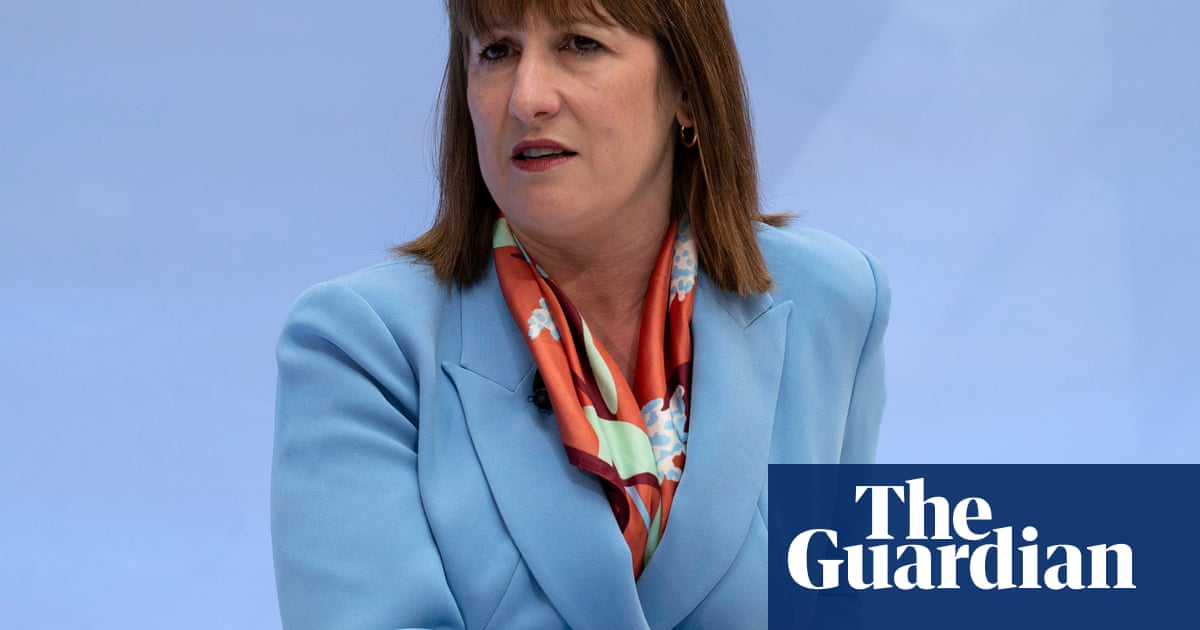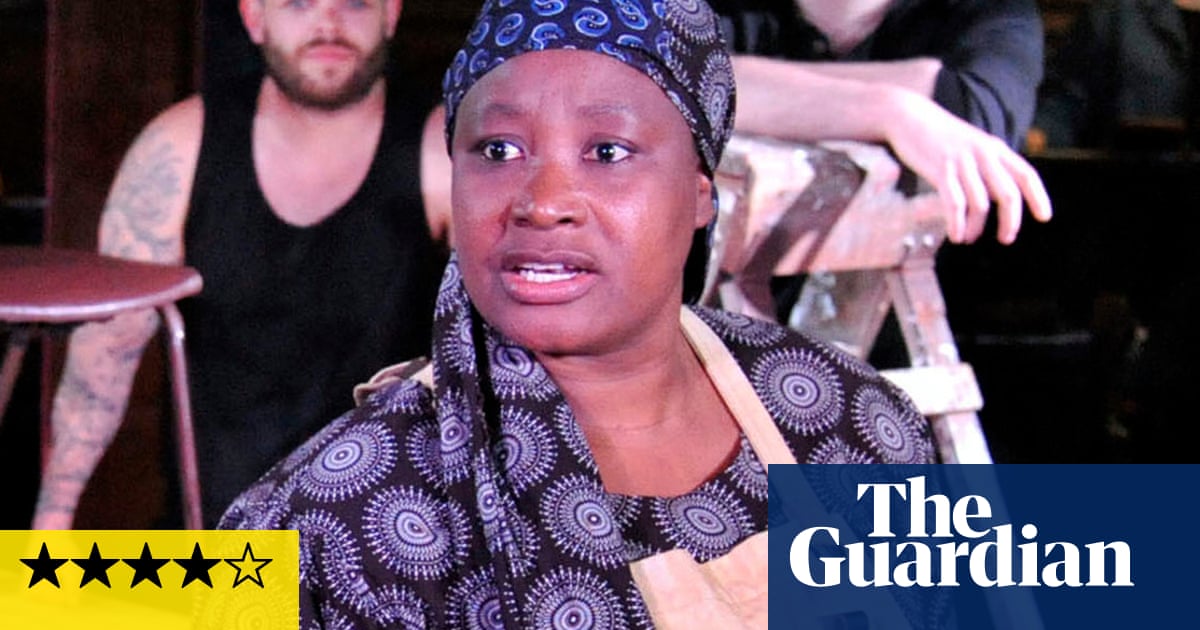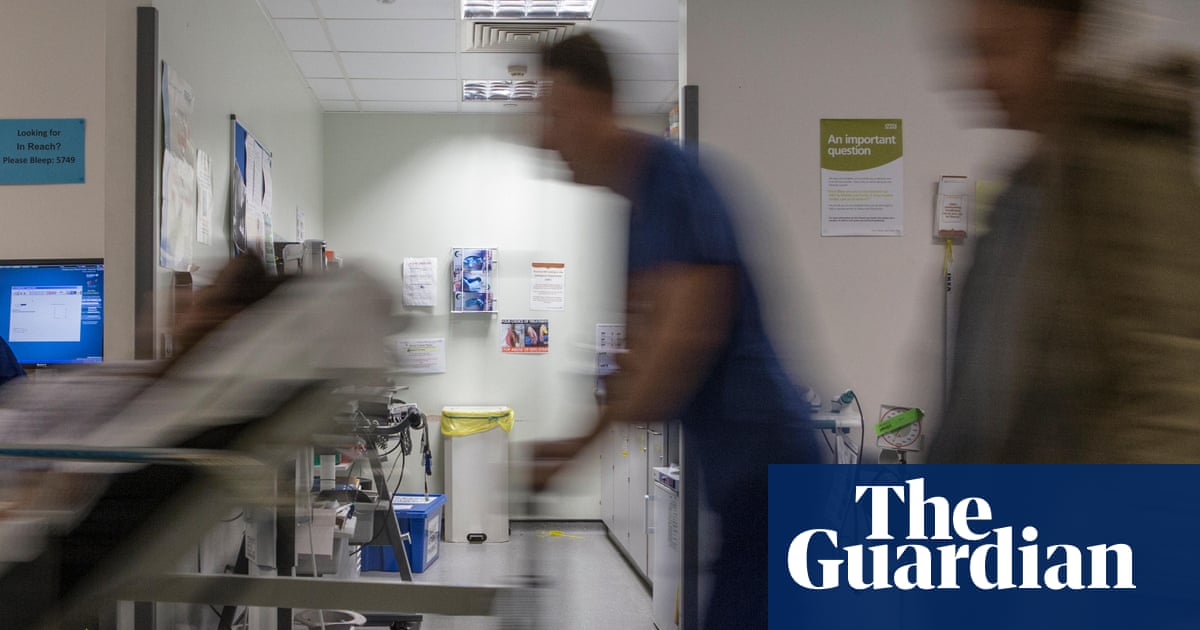Key events Show key events only Please turn on JavaScript to use this feature
Ireland exposed with tariffs on pharma exports expected

Lisa O'Carroll
Ireland’s deputy prime minister has had a call with the European Commission vice president Maros Sefcovic this morning, adding to a sense of looming crisis of Donald Trump’s tariff plan.
Simon Harris’s office said:
Commissioner Šefčovič updated the tánaiste on the work ongoing at an EU level in its preparation to respond to the expected US announcement on tariffs in the coming hours.
They both agreed to keep in close contact in the coming hours and days.
There is now heightened nervousness in Ireland that the EU may include tariffs on European revenues of US tech and social media firms as part of its counter measures.
Sources say Google’s global finance director recently sought a meeting with the Irish finance minister, in a sign of concern being felt in both political and investor circles.
Sefcovic is leading the EU’s response, but Ireland is particularly exposed with tariffs on pharmaceutical exports expected after the US commerce secretary Howard Lutnick branded Ireland a “tax scam”.
Raspberry PI reports drop in profits but upbeat outlook drives shares higher
Raspberry Pi, whose popular minicomputers are sold around the world and which floated on the London stock market last year, has reported a hefty fall in annual profits as it battled inventory issues, but an upbeat outlook drove its shares higher.
In its first annual results since the IPO, the Cambridge-based company reported a 2% dip in annual revenues to $259.5m, and a 57% drop in pretax profits to $16.3m.
However, this was against a strong year-on-year comparison, and it launched 22 new products in 2024. Analysts said it could still become the UK tech success story that many have been hoping for.
The shares jumped by 6.5% to 501.50p in early trading.
The company said:
With channel inventory now normalised, Raspberry Pi anticipates a steady build-up in demand throughout the year, positioning us strongly despite ongoing macroeconomic and geopolitical uncertainties. The projected pace of market recovery, coupled with the timing of embedded design wins, strengthens confidence in solid and sustainable sales growth in full-year 2025.
Raspberry PI was valued at £542m at the IPO in June, the largest UK stock market flotation since July 2023 when CAB Payments listed at £850m. The shares were priced at 280p, at the top end of its range, amid strong demand from financial institutions and individual investors.

John Moore, senior investment manager at RBC Brewin Dolphin, said:
Raspberry Pi’s debut last year seemed a key point of sentiment for the IPO market and London listings, in part because it was a developing story. While on the face of it the comparisons with 2023 don’t make for great reading, there are a few things going on beneath the surface and it is worth seeing these in context.
Among them, inventory issues were an industry-wide challenge for much of the reporting period, but improved during the final quarter and into 2025. In addition, 2023 was an exceptionally strong year for Raspberry Pi and was always going to make for a tough comparator. In terms of development, a strong product release schedule highlighted today offers encouragement for this year and beyond.
Longer term, even though it may not be a familiar name to many people at the moment, Raspberry Pi has the potential to be the UK tech success story many market commentators have been looking for.
Dan Lane, UK lead analyst at the stock trading platform Robinhood, said:
A wall of negative results today is a world away from the upbeat half-year update but the big jump in products released could be the saving grace. With 22 new products launched during 2024, of which Raspberry Pi said it would feel the full benefit in 2025, investors might be willing to look past big drops in profits and earnings per share.
If Raspberry Pi can push its way into the semiconductor market, as rivals feel the pressure from the US government and possibly face subsidies being pulled, the opportunity set could be huge. It will need to steady the ship though and today’s results show it hasn’t been a completely clean start to market life.
Raspberry Pi’s recent IPO was heavily watched and the company has borne the hopes of the UK’s ability to make tech IPOs a success. Whether it enjoys that status or not, the London market will be holding the firm up to hopefully entice a few more businesses to come and do the same.
Whether numbers like today’s are teething issues or not could have a real impact on the firm’s trajectory from here - it will need to get back to growth quickly. That said, with its new product set that could be an exciting prospect.
'Business Vikings' to make millions from takeover of Bakkavor by Greencore

Joanna Partridge
In corporate news, two Icelandic brothers, described as “business Vikings”, are to set to make millions after their ready-meals company Bakkavor agreed to be taken over by competitor Greencore, in a move to set to create a food to-go giant.
Greencore, the UK’s largest sandwich maker, said it had agreed to buy its rival Bakkavor in a deal valuing the company at £1.2bn.
Two of its earlier bids for the company had been rejected as Bakkavor considered they undervalued the business.
Greencore, which specialises in prepared food, employs around 13,300 staff and has 14 factories across the UK which make products including sushi and chilled ready meals for all major UK supermarkets.

The group supplies almost 750 million food-to-go items every year.
Bakkavor, which describes itself as the market leader in fresh prepared food in the UK, makes 85% of its revenues in Britain manufacturing products for the major supermarkets including Tesco, Marks & Spencer, Sainsbury’s, Waitrose, and Asda.
It makes products including dips and houmous for Tesco, high protein salad ranges for Marks & Spencer, and M&S’s gastropub range of ready meals.
Together, the companies said they would create a leading UK convenience food business with a combined revenue of £4bn, offering a diverse range of products.
Bakkavor was founded by brothers Lydur and Agust Gudmundsson, who between them served as chief executive of the business from 1986 until 2022.
European shares drift lower
European shares are drifting lower, as investors are waiting nervously for the US tariff announcement this evening, and any retaliation from the country’s trading partners.
In London, the FTSE 100 index has lost 20 points, or 0.2%, to 8,614. Stock markets in Germany, France and Italy have fallen by around 0.5%.
In currency markets, the pound has slipped by 0.1% against the dollar to $1.2903 while the euro is down by a similar amount, at $1.0783. The dollar is up a tad against a basket of major currencies.
Chris Weston, head of research at the Australian broker Pepperstone, said
We head into Trump’s moment to shine with many having already deleveraged to run as flat or neutral a position as they can in equity, the dollar and US Treasuries.
Ipek Ozkardeskaya, senior analyst at Swissquote Bank, said that after the US manufacturing data yesterday,
The Fed is still expected to deliver its next rate cut in June – and not before – but things could change rapidly depending on how much Trump policies will hit the US economy.
Today’s tariff announcement could give a fresh direction to global markets, but it would be naive to think that today will mark the end of the tariff shenanigans. More likely, it marks the start of another phase of uncertainty and turmoil. The real risk isn’t just the tariffs themselves but the constant threat of escalation, reversals, and retaliation.
She added:
Good news for investors is that an economic slowdown is not necessarily synonym of market selloff, as the Fed would step in by lowering rates and buying bonds to ensure financial stability. Inflation – on the other hand – is expected to be one-off and hopefully heal itself with economic slowdown.
The problem is that the supply-side shocks tend to be inflationary – as we saw during the pandemic times. And the tariffs could disrupt the global supply chains and bring inflation back before giving the Fed time to reach its 2% target.
For now, investors show an increased appetite for bonds – and that despite the expectation of a further rise in global debt levels. As such, the US 10-year paper is amassing haven flows – the 10-year yield fell to as low as 4.13% yesterday from around 4.80% peak reached by mid-January.
Similarly, the 10-year European government bond yields eased by almost 30 basis points since their mid-March peak. In equities, the European indices rebounded and the Stoxx 600 recovered by more than 1%. But the futures point at little appetite before the tariff announcement.
Eurozone bond yields are little changed ahead of the tariff announcement. Germany’s 10-year government bond yield, the benchmark for the eurozone, was flat at 2.685%.
Introduction: Global investors cautious, gold rises as markets await 'liberation day' tariff announcement
Good morning, and welcome to our rolling coverage of business, the financial markets and the world economy.
It’s world tariff day. Donald Trump is set to announce his latest round of tariffs at 4pm ET (9pm UK time), threatening to unleash a global trade war on what he has dubbed “liberation day”.
Asian stocks were little changed after a choppy session, with Japan’s Nikkei ending the day 9 points higher. Hong Kong’s Hang Seng dipped by 0.2% and the South Korean Kospi fell by 0.6% while the Chinese markets were unchanged.
Earlier on Wall Street, the S&P 500 finished 0.38% higher while the Nasdaq rose by 0.87% and the Dow slipped slightly.
Gold is trading 0.2% higher at $3,116.2 an ounce, after hitting a new all-time high of $3,148.8 an ounce yesterday, as investors rush into safe assets.
Ben Bennett, Asia-Pacific investment strategist at Legal & General Investment Management, told Reuters:
Nervousness is the dominant sentiment right now.
Investors are hoping for some clarity… But tariffs are already weighing on business sentiment, and this will probably feed through into lower global economic activity in the coming months.
The US president spent Tuesday “perfecting” the trade plan, according to his press secretary Karoline Leavitt.
The plans for further tariffs have rattled investors, company executives and economists, and triggered heated rows with the US’s largest trading partners. Among them, Canada’s prime minister, Mark Carney, has called the tariffs “unjustified” and pledged to retaliate, and the European Union’s president Ursula von der Leyen has said it has a “strong plan” to retaliate, although it would prefer to negotiate a solution.
According to the Washington Post, Trump plans to impose 20% tariffs on most goods imported to the United States, rather than targeting certain countries or products.
This is clearly not good for economies around the world. A new report from Aston Business School has shown that if Trump imposed 25% tariffs, triggering retaliatory action, it could cause a $1.4tn hit to the world economy.
Yesterday, survey data showed US manufacturing contracted in March after growing for two consecutive months, while factory gate inflation jumped to the highest level in nearly three years amid mounting anxiety over tariffs on imported goods.
The Agenda
-
1.15pm BST: US ADP Employment change for March
-
3pm BST: US Factory orders for February
-
9pm BST: Trump to announce latest US tariffs

.png) 1 month ago
35
1 month ago
35

















































